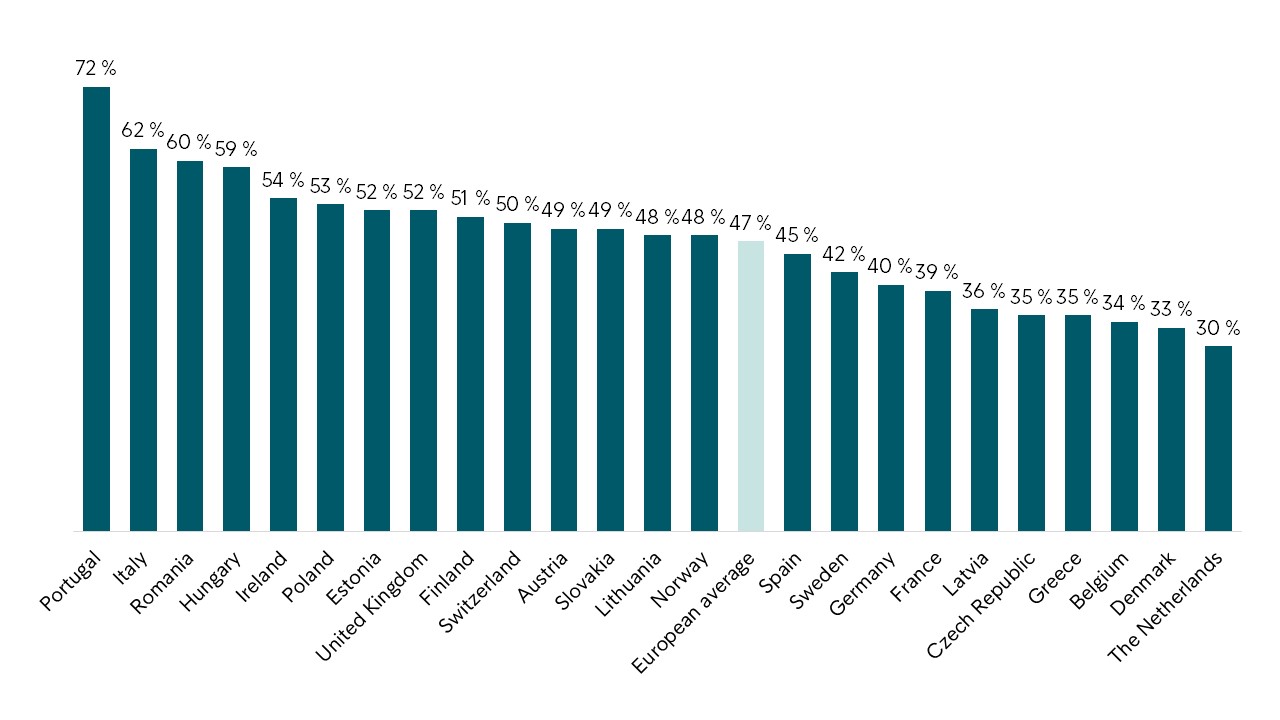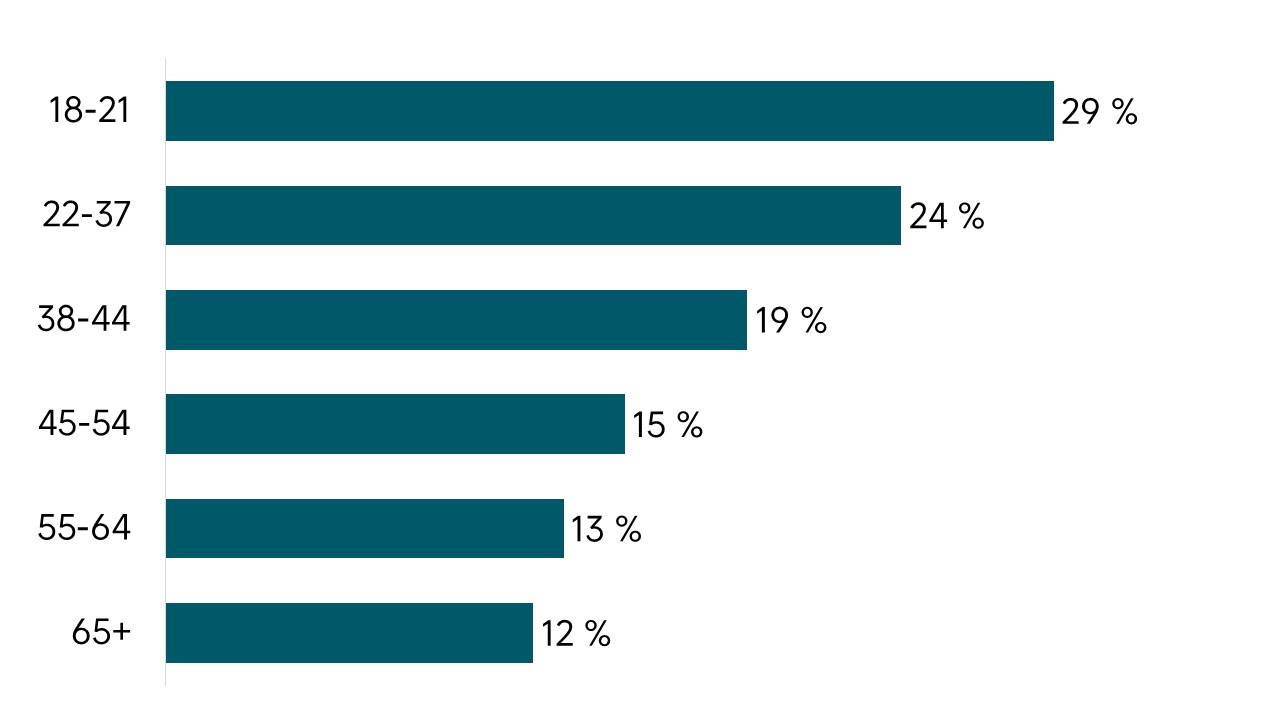1 in 2 Europeans are dreaming of a green Christmas
A growing interest in sustainability indicates that many Europeans intend to spend less on Christmas gifts this year. However, close to a fifth (18 per cent) say they will spend more money than they can afford in an effort to be ‘green’ consumers.

With most of Europe still enduring lockdowns due to the Covid-19 pandemic, many of us will be having a more restrained Christmas this year.
Covid-19 is a stark reminder of the relationship between economic, human and planetary health. As consumers reflect on impending challenges such as climate change, sustainability is influencing their purchasing behaviour.
Half are limiting their spending to reduce impact
One in two respondents (47 per cent) are limiting their spending in order to become more sustainable – up from 42 per cent in 2019. Respondents in Portugal and Romania appear to be the most conscientious here, with 65 per cent reducing their impact in both countries.
Eco-gender and eco-generation
Millennials and Gen Z have been shown to be more aware of humanity’s responsibility when it comes to combatting climate change, according to US data by the Pew Research Center. A number of reports, including research by Mintel also suggest that women are more committed to environmentally friendly behaviours than men.
These eco-gender and eco-generation gaps are reflected in our findings: 50 per cent of Millennials, Gen Z and female respondents limit their spending for sustainability reasons. Among male consumers and those above 65 years old, the figure falls to 44 per cent.
Sustainability impacts Christmas shopping
Interest in sustainability is also directly affecting Europeans’ Christmas shopping. Nearly half of those who responded to the survey say they are buying fewer Christmas gifts because they do not like the waste that is generated, and Gen Z and Millennials (between the age of 18 and 37) are twice as likely as seniors (65+) to spend extra money on environmentally friendly gifts that limit their carbon footprint.

Concerns about personal waste footprint are felt most strongly in Portugal (72 per cent), Italy (62 per cent) and Romania (60 per cent), but more than half of those in Hungary, Estonia, Ireland, the UK and Switzerland are also cutting back on buying festive gifts to reduce waste. Dutch consumers rank at the bottom end of the scale, yet even there as many as three in ten say they are thinking about how to avoid creating waste when they do their Christmas shopping.
I do not like the waste that is generated by Christmas presents so I buy fewer gifts now than I did a few years ago (agree, split by countries):

It’s clear from these findings that the sustainability message about buying less and cutting down on waste is making an impact on consumers’ purchasing behaviour. This is underlined by the fact that 47 per cent now say that their interest in sustainability had motivated them to limit their spending, whereas in the 2019 ECPR the equivalent figure was 42 per cent.
Younger generations lead the way
And the younger eco-conscious generation that is emerging in our findings suggests that this figure will continue to rise in the years ahead, as ideas about sustainable consumption will become more established.
We also see that another effect of the shift towards green consumption. Some, especially younger consumers, are spending more money on gifts to buy more sustainable Christmas presents. This applies to nearly three in ten 18 to 21-year-olds and almost a quarter of 22 to 37-year-olds.
As sustainable Christmas presents are more expensive, I spend more money than I can afford in an effort to be green (agree, split by age groups):

About the report:
The European Consumer Payment Report is based on an external survey of 24,198 consumers in 24 European countries. The field work took place between 28th of August and 5th of October 2020.